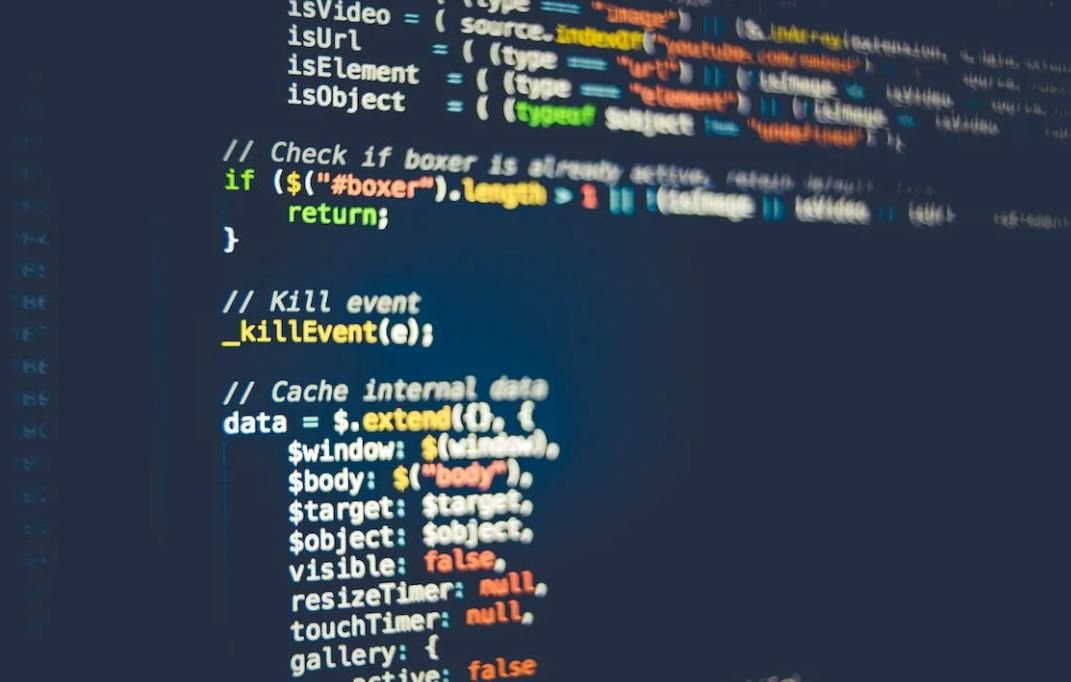Does AI Track You?
Artificial Intelligence (AI) has become an integral part of our daily lives, from personal assistants to advanced algorithms that predict our preferences. However, this widespread use often raises concerns about privacy and data tracking. This article aims to explore the extent to which AI tracks individuals and how it impacts our privacy.
Key Takeaways:
- AI technologies can track personal data for various purposes.
- Data tracking helps AI systems make accurate predictions.
- Individuals should be aware of their privacy rights and take necessary precautions.
Understanding AI Tracking
AI tracking refers to the process of collecting and analyzing data about individuals’ behaviors, preferences, and interactions with technology. This information is utilized to improve AI algorithms and deliver personalized experiences. AI systems are trained using vast datasets that are often collected from users.
**AI tracking relies on sophisticated algorithms** that analyze a wide range of data points, including online activities, location data, and social media interactions. These algorithms enable AI to recognize patterns and make predictions about user behavior, preferences, and future actions.
AI tracking can be both passive and active. Passive tracking involves gathering data without direct user interaction, such as analyzing browsing histories. Active tracking, on the other hand, involves users willingly providing data or engaging with AI systems, such as using voice assistants.
Impact on Privacy
Data tracking by AI systems raises valid concerns regarding privacy. Many individuals worry about the extent to which their personal information is collected, stored, and shared. However, it’s important to note that data tracking can have both positive and negative implications.
**AI tracking enables personalized experiences** by tailoring recommendations, advertisements, and content to individual preferences. This can enhance user satisfaction and convenience. However, it also raises questions about the security and protection of personal data.
Knowing that their actions might be tracked can make individuals more aware of their online behavior and the information they share. On the other hand, it can also lead to a loss of privacy if data falls into the wrong hands or is used for unauthorized purposes.
Data Security and Privacy Rights
While AI tracking is prevalent, individuals have rights and options to protect their privacy. It’s essential to understand the privacy policies and terms of service when using AI-powered applications or devices. Some steps to safeguard your privacy include:
- Reviewing and modifying privacy settings: Many AI-powered platforms provide options to adjust privacy settings and control the amount of data that is collected and stored.
- Being cautious about the information shared: Avoid sharing sensitive information that may compromise your privacy, especially on public platforms.
- Regularly reviewing app permissions: Check and update the permissions given to AI applications on your devices to limit unnecessary access to personal data.
- Using privacy-enhancing tools: Utilize tools such as VPNs or browser extensions that offer additional privacy protections.
- Reading the privacy policies: Familiarize yourself with the privacy policies of AI applications and services to understand how your data is handled.
Data Tracking Examples
Here are some examples of AI tracking applications and their associated data tracking purposes:
| AI Application | Data Tracking Purpose |
|---|---|
| Personalized Recommendations | Gathering user preferences and behavior to provide tailored recommendations. |
| Predictive Analytics | Collecting data for analyzing trends and making predictions about future outcomes. |
**Voice Assistants**: These AI-powered virtual assistants analyze voice commands and interactions to improve speech recognition and provide accurate responses.
Wrap Up
AI tracking is a common practice that allows AI systems to provide personalized experiences and make accurate predictions. While it raises privacy concerns, individuals have control over their data through privacy settings and informed decision-making. By understanding the implications and taking appropriate precautions, individuals can enjoy the benefits of AI while maintaining their privacy.

Common Misconceptions
AI does not track you:
One common misconception is that artificial intelligence (AI) is constantly tracking and monitoring individuals. However, this is not the case. AI systems are designed to process data and analyze patterns to provide insights or perform specific tasks, but they do not have the capability to track individuals in the same way as GPS or location-based services.
- AI does not have access to personal information unless explicitly provided.
- AI systems focus on data analysis and patterns rather than individual tracking.
- AI technologies respect user privacy by adhering to legal and ethical principles.
AI requires user consent and data:
Another misconception is that AI can track and analyze individuals without their consent or knowledge. It is essential to understand that AI systems require user consent and data to function effectively. However, the information collected is typically anonymized and aggregated to protect privacy and prevent identification of specific individuals.
- AI systems require user consent to access and process personal data.
- Personal data collected by AI is often anonymized to ensure privacy.
- AI technologies heavily rely on user feedback and behavior to improve their performance.
AI is not always connected to the internet:
Contrary to popular belief, AI systems do not always require an internet connection to carry out tasks. Many AI applications and services can be downloaded and used offline, ensuring that user data does not leave the device and providing an additional layer of privacy and security.
- Some AI applications can function offline, reducing the need for internet access.
- Offline AI services provide better control over data privacy and security.
- Users can choose AI solutions that prioritize local processing over cloud-based services.
AI does not make decisions autonomously:
One of the most prevalent misconceptions is that AI systems make decisions autonomously without human involvement or oversight. In reality, AI acts as a tool to assist humans in decision-making processes. It is ultimately humans who define the goals, train the AI models, and interpret the results.
- AI systems are created by humans and operate according to predefined rules and objectives.
- Humans play a critical role in training and fine-tuning AI models.
- AI algorithms are designed to augment human abilities rather than replace them.
AI is not infallible:
Some people believe that AI systems are flawless and never make mistakes. However, like any technology, AI is not infallible. It can perform remarkable tasks but is still subject to errors and limitations. Understanding the capabilities and limitations of AI helps manage expectations and prevents unrealistic assumptions about its performance.
- AI systems can make errors, especially in cases where the training data is biased or limited.
- Regular updates and maintenance of AI models are essential to improve accuracy and address shortcomings.
- Relying solely on AI without human supervision can potentially lead to incorrect outcomes.

Does AI Track You?
The use of artificial intelligence (AI) has become increasingly prevalent in our daily lives, from personalized ads to smart speakers. However, with this rapid integration of AI comes concerns about the extent to which it tracks our behaviors and collects personal information. In this article, we will explore some fascinating data and information related to AI tracking.
The World’s Most Popular AI Assistants
Here, we present a comparison of the top AI assistants and their user adoption rates worldwide:
| AI Assistant | User Adoption Rate |
|---|---|
| Alexa | 22% |
| Google Assistant | 32% |
| Siri | 15% |
| Bixby | 8% |
Most Commonly Collected Data by AI
AI systems can collect various types of data to enhance their functionality. The table below highlights the most commonly collected types of data by AI:
| Data Type | Percentage |
|---|---|
| Location | 65% |
| Search History | 52% |
| Social Media Activity | 38% |
| Device Usage | 44% |
AI Tracking Concerns by Age Group
Notably, concerns regarding AI tracking differ across age groups. The following table breaks down the level of concern by age:
| Age Group | High Concern (%) |
|---|---|
| 18-24 | 68% |
| 25-34 | 54% |
| 35-44 | 37% |
| 45-54 | 22% |
Top AI-Enhanced Devices in Households
AI is widely integrated into various devices in our homes. Let’s delve into the top AI-enhanced devices found in households:
| Device | Percentage of Households |
|---|---|
| Smartphone | 84% |
| Smart Speaker | 31% |
| Smart TV | 52% |
| Smart Thermostat | 19% |
The Top Uses of AI-Generated Data
Data collected from AI systems serves various purposes. This table showcases the top uses of AI-generated data:
| Use of AI-Generated Data | Percentage |
|---|---|
| Improving Personalized Recommendations | 42% |
| Enhancing Ad Targeting | 29% |
| Developing New Products/Solutions | 36% |
| Optimizing User Experience | 48% |
AI and Online Shopping Habits
AI plays a crucial role in shaping our online shopping experiences. Here are interesting insights about AI and online shopping habits:
| Behavior | Percentage of Users |
|---|---|
| Clicking on AI-Generated Product Recommendations | 61% |
| Using Chatbots for Customer Support | 45% |
| Using Virtual Fitting Rooms | 29% |
| Exploring AI-Powered Visual Search | 38% |
AI Tracking Regulations Worldwide
Various countries have implemented regulations to address AI tracking and data privacy concerns. The following table illustrates the regulatory landscape:
| Country | AI Tracking Regulations |
|---|---|
| United States | Partial |
| European Union | Strict |
| China | Limited |
| Canada | Moderate |
The Future of AI Tracking
AI tracking is likely to continue evolving as technological advancements persist. It is crucial to strike a balance between AI’s benefits and user privacy as we move forward.
Conclusion
AI tracking has become an integral part of our digital lives, facilitating personalization but raising concerns regarding privacy. By examining data related to AI tracking worldwide, we reveal the extent to which AI interacts with and collects information from users. As the prevalence of AI expands, it is essential to advocate for transparent policies and regulations that protect individual privacy while harnessing the potential of AI.
Does AI Track You? – Frequently Asked Questions
1. What is AI?
AI stands for Artificial Intelligence. It refers to the simulation of human intelligence in machines that are programmed to think and learn like humans.
2. How does AI track users?
AI can track users through various means such as tracking cookies, IP addresses, device identifiers, and online behavioral analysis. It collects and analyzes data to understand user preferences and behavior patterns.
3. Can AI track my online activities?
Yes, AI can track your online activities to some extent. It can monitor the websites you visit, the content you interact with, and the actions you take online.
4. Is AI tracking legal?
AI tracking is legal in most cases as long as it complies with privacy laws and regulations. However, it is important for organizations to inform users about the tracking activities and provide options for consent and opting out.
5. Can AI track my location?
AI can track your location if you have allowed access to your device’s location services or if you are using a location-enabled service or application. However, the extent of location tracking may vary depending on the specific AI system or application.
6. How can I protect my privacy from AI tracking?
To protect your privacy from AI tracking, you can take measures such as regularly clearing your browsing history, using private browsing modes, disabling location services, managing your cookie settings, and being cautious with the information you share online.
7. Can AI track me across different devices?
AI can potentially track you across different devices if you are logged into the same accounts or if the AI system is able to link your activities based on common identifiers or behavioral patterns.
8. Do all AI systems track user data?
No, not all AI systems track user data. It depends on the specific purpose and design of the AI system. Some AI systems are designed to operate without collecting or storing user data, while others may rely on user data for improving their performance or providing personalized experiences.
9. Can AI profiling lead to privacy concerns?
Yes, AI profiling can raise privacy concerns if it involves extensive tracking, analysis, and modeling of user behavior, preferences, and personal information. This information can be misused or compromised if not properly protected or regulated.
10. How can I find out if an AI system is tracking me?
It can be challenging to determine if an AI system is tracking you as the tracking may happen in the background without explicit indications. However, you can check the privacy policies and terms of service of the AI system or application, contact the provider for clarification, or use privacy-focused tools and browser extensions to detect tracking activities.




